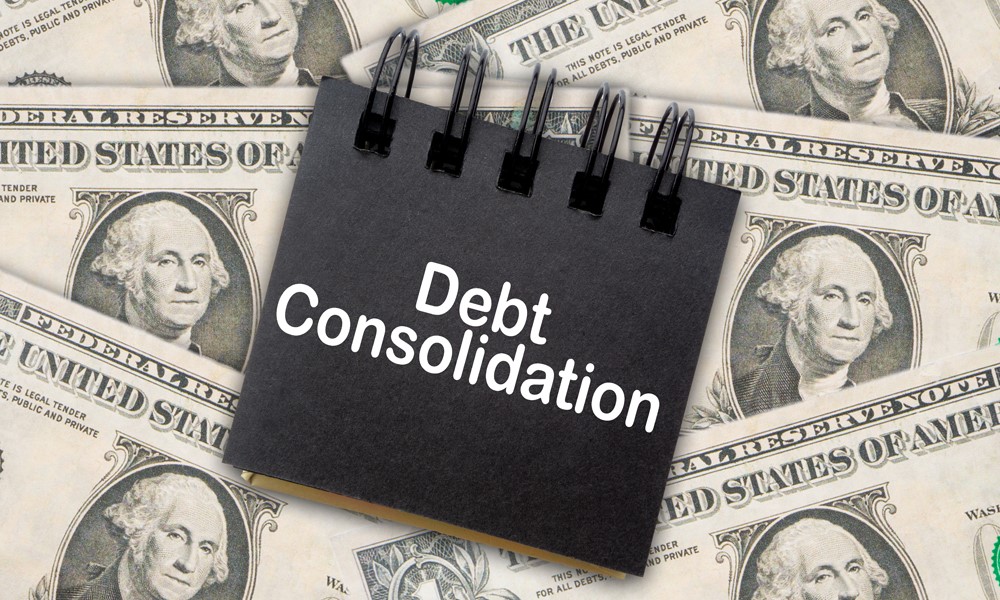When you’re carrying a heavy debt load, paying it down can be overwhelming. If you get strategic and methodical with your payments, you can dig out a lot sooner than you think. Here’s a three-step plan that will help you get out of debt sooner than you think.
1. Select your lowest debt and pay extra
First, identify the smallest debt you have and find a way to pay more than the minimum monthly balance, whether it's $25, $50 or $100. While you continue to make on-time monthly payments (so you avoid damaging your credit score and avoid late fees) on all other debts, make the one little debt your sole focus, giving it everything you've got. Just keep making extra payments and watch the balance decrease.
Let’s use an example:
-
- credit card balance $750
- minimum monthly payment $30
- interest 12%
At this rate, it would take 29 months to pay off, while you spend $117 in interest.
So what happens when you add an extra $25 a month to your monthly payment?
-
- Payment is now $55 a month
- Loan duration 15 months with $60 total interest
- Total savings in interest: $57
2. Change to bi-weekly payments
Once you started paying extra on the debt you’re most focused on, kick it up a notch and change your payment schedule from monthly to bi-weekly.
You do this by taking the monthly payment and dividing it in half. Then every other week, send in the halved payment.
What if a third monthly payment comes along (as it will at least twice a year)? Don’t skip it, or you’ll miss out on the full benefits! Because after you do this a full year, you’ll come out one month ahead of schedule, which means a lower balance, less interest. Tip: Before you do this with an installment loan (such as your car payment or mortgage), contact your lender to get on the same page. Otherwise, it may count only as a partial payment.
Remember your credit card with the $750 balance? We’ll demonstrate how bi-weekly payments work if you also roll in the extra payment.
-
- Your $55 credit card loan payment is now $27.50 every two weeks.
- Doing the combo of extra-payment, bi-weekly combo will pay this off in 14 months, with $55 total interest.
- Now you’re paid up 15 early, with total savings of $62.
So, saving $62 may not seem like a big deal in the grand scheme of things. But that’s a 48% savings. If you put this into practice with all your debts, including credit card, student loans and mortgage, you’ll shave many years off your payment schedule and save thousands of dollars!
3. Practice debt snowballing
Once your credit card balance is zero, tack on that extra $55 into another debt, say, your student loan or your car, so you can save even more. This is called debt snowballing. To see how this could work for you, check out Minnwest Bank’s handy calculator, How soon can I eliminate my debts? and see how the snowball effect can turbocharge your debt-paying pace.
Once you practice these three steps — boosting your monthly payment, embracing a bi-weekly payment schedule, and doing the debt snowball — you’ll eventually build a mighty debt-slaying machine without destroying your budget. It may take a few years, but putting this into practice will save you a bundle on interest over the life of your loans.
Other debt slashing tips:
While snowballing and making bi-weekly payments can eliminate your debt, you won’t get far unless you build other good financial habits.
Automate your payments
Using your bill pay tool on your checking account, schedule as many bi-weekly payments as you can. This lets you pay down your debt without having to remember anything. Just make sure you budget for it!
Refuse new debts
If you’re trying to get a handle on your debt, it’s important not to take on any new debt. That’s where the emergency fund comes in — you’ll want at least a couple grand set aside so if you need new tires, you can buy them. In fact, build that before you start concentrating on wiping out debt.
Be proactive
Whenever you get extra cash, commit to putting some of it toward your debt, whether it’s a gift, a bonus at work, a tax refund or selling something online.
Set a budget every month
Having a monthly spending plan and sticking to it is foundational to zapping debt and building wealth.
As you make your way through life, Minnwest Bank has convenient mobile banking tools and hassle-free checking to help you manage your spending and pay the bills.
Plus, our personal bankers are always just a phone call away.


